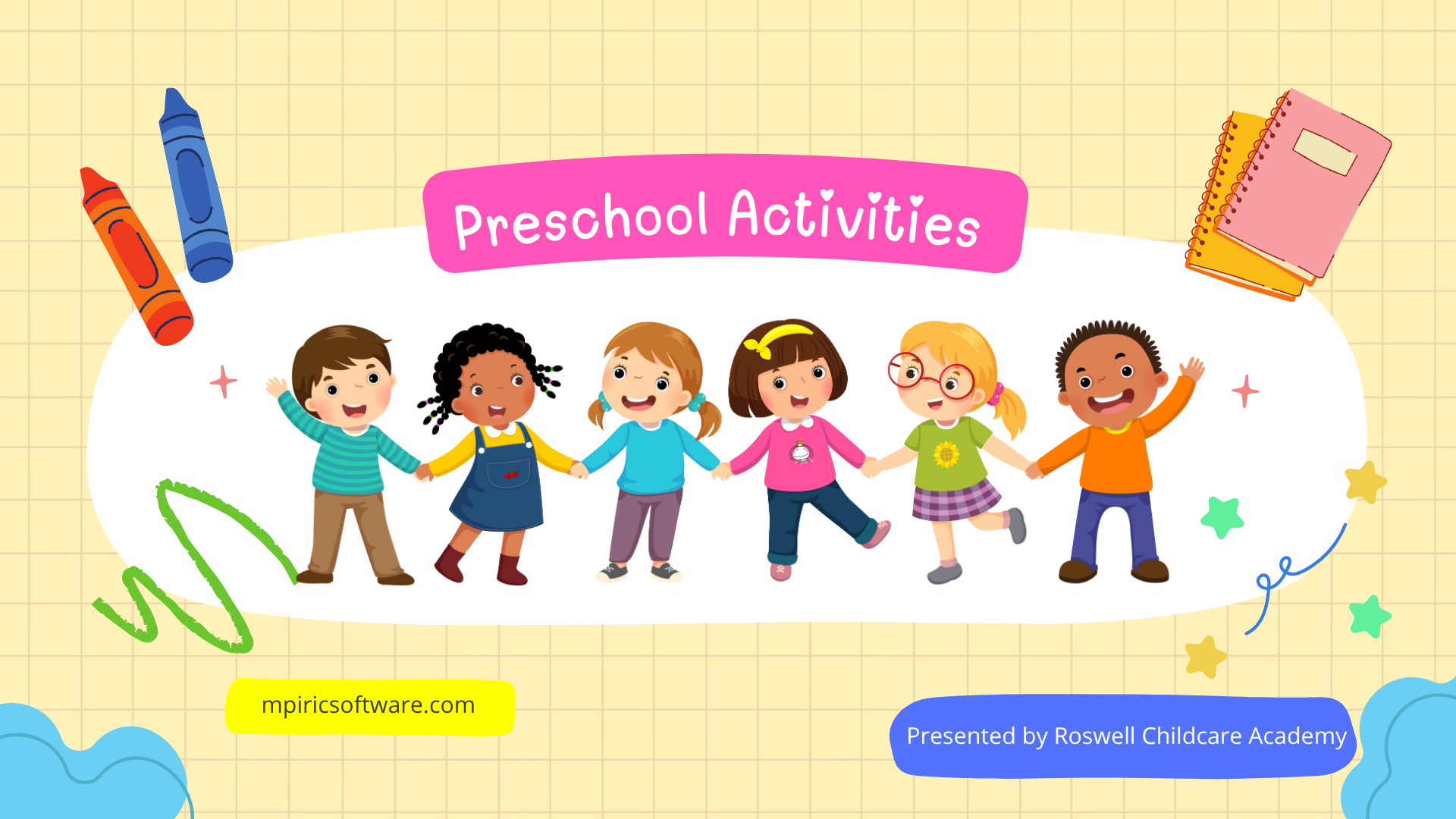- Email: roswellchildcareacademy@gmail.com
- Phone: 470-282-1521

Preschool activities are more than just a way to kill time in a world where early childhood education lays the groundwork for lifelong learning. They are effective tools that support young children’s social, creative, motor, and critical thinking development. However, the inventiveness that goes into these activities is what really makes them effective. Preschoolers who participate in creative activities not only learn but also have fun while gaining important life skills.
Creative Preschool Activities go beyond basic memorization. They tap into a child’s natural curiosity and allow them to explore new ideas, solve problems, and express themselves in meaningful ways. Whether it’s through painting, building with blocks, or dramatic play, these experiences lay the foundation for lifelong learning habits.
Art fosters self-expression. Painting, drawing, cutting, and gluing help children explore textures, colors, and shapes.
Singing songs, dancing, and using instruments encourage rhythm, coordination, and auditory skills. It’s also a fun way to learn counting and language.
Sensory play engages all five senses, allowing children to investigate different textures, smells, and sounds. Activities like playing with sand, rice, or water enhance cognitive growth.
When children create or retell stories using puppets, they boost their language skills, creativity, and memory. It’s also a great way to teach sequencing and comprehension.
Using blocks or LEGOs fosters imagination while improving spatial awareness, fine motor skills, and basic engineering thinking.
Dress-up games or setting up pretend kitchens or doctor’s offices teach empathy, cooperation, and real-world concepts.
Choose weekly themes like “Under the Sea” or “Outer Space” and create related Preschool Activities around them. It brings structure and excitement to the classroom.
Let children take the lead on projects. Provide materials and watch their imaginations soar. Open-ended play promotes decision-making and independence.
Egg cartons, toilet paper rolls, and bottle caps can be transformed into crafts. This not only encourages creativity but also teaches kids about recycling.
Educational apps and interactive whiteboards can supplement hands-on activities, especially for visual or auditory learners.
Parents can support learning through fun at home too:
Children learn best when they are having fun. Laughter and enjoyment ease tension and improve memory. For this reason, educators frequently assert that “play is the work of the child.” The magic of preschool activities is that when they are enjoyable, children aren’t even aware that they are learning.
In Preschools GA, educators know that children learn best when they’re having fun. Playful experiences and laughter not only reduce stress but also boost memory and brain development. That’s why many early childhood experts in Preschools GA often say, “Play is the work of the child.” The beauty of engaging preschool activities is that when they’re enjoyable, kids don’t even realize they’re learning.
Engaging in group preschool activities teaches children how to share, take turns, and cooperate with others. Whether they’re pretending in a kitchen corner or working together on an art project, kids learn empathy, patience, and conflict resolution skills that are crucial both in and outside the classroom.
Creative Preschool Activities aren’t just a break from structured learning they’re the foundation of it. These activities foster creativity, increase social-emotional intelligence, and produce contented, driven students. A child will remain interested and curious if creativity is incorporated into their day, whether at home or in the classroom. Hence, when selecting a preschool or organizing activities at home, make sure that creativity is a key component. In terms of your child’s future, it might be the greatest investment you make.
Since enjoyment is the key to a quality education, families searching for Preschools GA will discover that many programs place a high value on experiential, imaginative, and playful learning methods.
Arts and crafts, pretend play, sensory bins, and singing songs are great for enhancing imagination and learning.
Daily. Creative learning should be a consistent part of the preschool day, whether through storytelling, movement, or art.
Yes. Visual, auditory, and kinesthetic learners all benefit from hands-on and imaginative play.
Look for signs like child-created artwork, open playtime, and a curriculum that mentions exploratory learning or play-based education.
Comments are closed